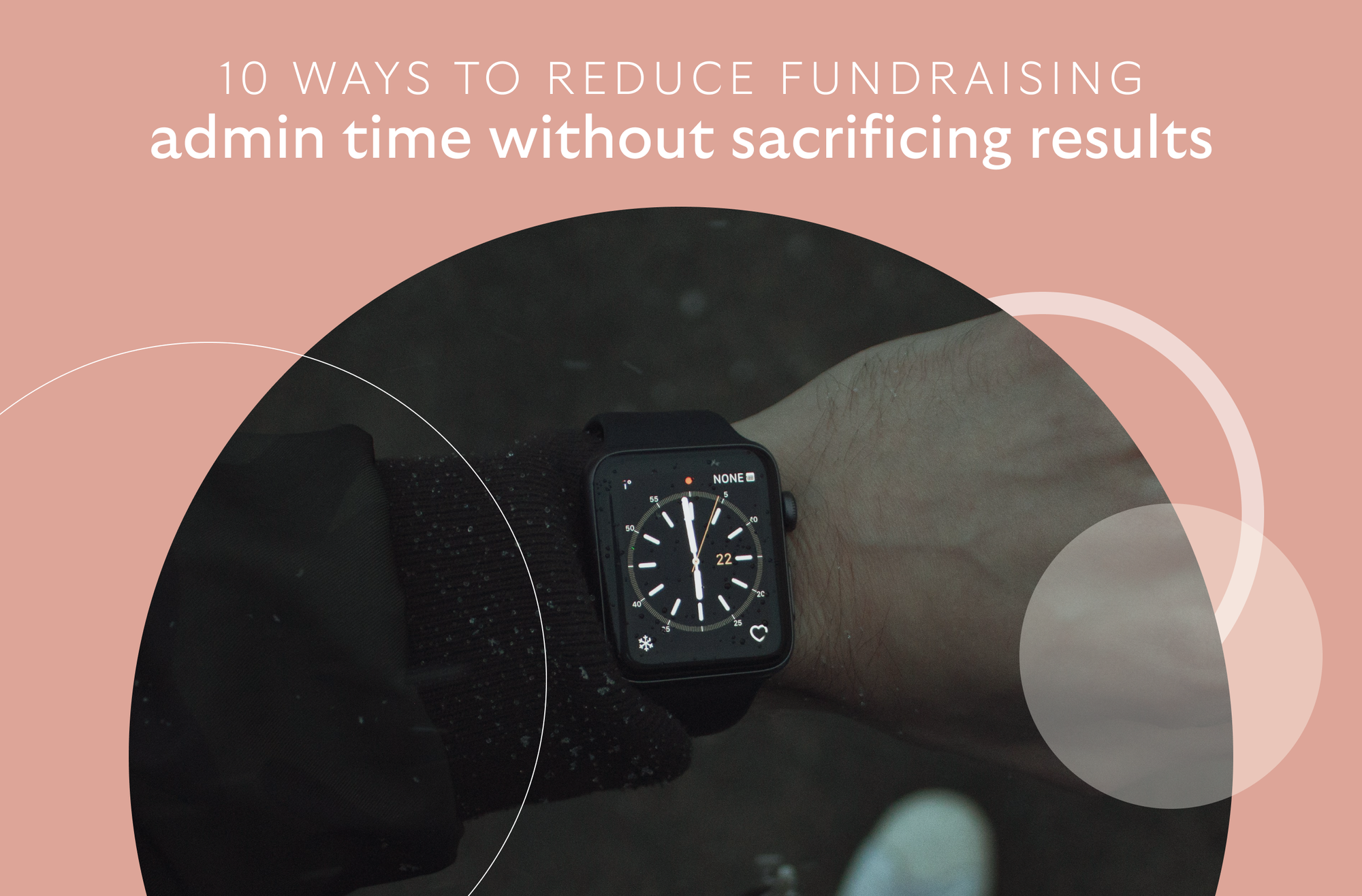Video Integration — boost the buzz around your online fundraising campaign
Time-saving – thoughtful automations save dozens of hours over your campaign
One-Click Checkout — our system will automatically charge the lucky winner
Text Message Notifications — keep your bidders engaged with text message notifications
How to Do Fundraising During Challenging Times?
By Whit Hunter

Fundraising has never been a walk in the park, and when challenging times come knocking, the path can become even more daunting. Yet, it's precisely during these trying moments that the importance of supporting those in need becomes all the more critical. Be it a global crisis, economic downturn, or a localized emergency, the call for fundraising remains constant.
In this article, we'll discuss practical strategies that will help you tackle the complex world of fundraising during challenging times. Let's ensure that those who depend on your support receive the help they require, even when the going gets tough.
Understanding the Context
When it comes to fundraising during challenging times, it's crucial to understand and assess the specific context you are operating in. Different types of crises, whether they are global, regional, or local, can significantly impact the approach and strategy for fundraising.
Assessing the Situation
Before initiating a fundraising campaign, it's important to evaluate the nature and scale of the crisis. This includes understanding how it affects your organization, your donors, and the community you serve.
For example, a financial crisis might reduce disposable income, affecting donors' capacity to give, while a natural disaster might lead to increased demand for certain services.
Adapting Fundraising Strategies for Different Types of Crises
Different crises require distinct approaches. For instance:
- Global crises, like a pandemic, affect a wide range of donors and may require shifting to digital fundraising methods.
- Regional crises, such as natural disasters, might necessitate targeted appeals to those directly or indirectly affected, as well as to a broader audience that may be moved to help.
- Local crises often call for engaging the local community, using local networks, and focusing on how the crisis directly impacts the area.
Compassionate and Purpose-Driven Communication
When writing to donors, especially in tough times, it's really important to talk in a caring and direct way. Here are some simple tips on how to do this:
Understand and Share Feelings
Think about what your donors are feeling. They're giving because they care, so show them that you get it. This means talking to them like you're having a real conversation, not just asking for money.
For example, you could start with something like, "We know these are hard times, and you're doing so much by helping us."
Keep it About the Mission
Always remember to talk about your group's goal, not just the tough situation.
For instance, instead of focusing on how hard things are, you might say, "Your support helps us keep doing important work, like helping families get meals."
Use Words That Paint a Picture
Describe things in a way that makes people feel like they're there. Say things like, "Your donation helps us buy warm blankets that feel like a cozy hug on a cold night."
Tell Stories About People
Instead of just talking about big problems, tell stories about actual people who need help. This makes it easier for donors to understand and care. Like, "With your $20, Emily can get the medicine she needs this month."
Say What Others Are Doing
Let your donors know that they're not alone in helping.
Mention that others in their community are also pitching in. This could be something like, "Lots of folks in our town are coming together to make a difference. You're part of this amazing group!"
Remember, it's all about being kind, clear, and focused on what your group is all about. Talk to your donors like they're friends who are helping you do something really good
Maintaining Donor Connections
Keeping in touch with donors is really key for raising money, especially when times are hard. It's all about making sure your donors stay connected to what you're doing and feel like they are part of your group's mission.
Why Is It Important to Stay Connected with Donors?
Repeated Donations
If donors feel like they're really part of your cause, they're more likely to keep giving. Building strong relationships with your donors means they'll likely stick with you and keep supporting your work.
Increased Donations
When donors really care about your cause, they often donate more. By making strong connections with them, you can motivate them to support your cause in bigger ways.
Spreading the Word
Happy donors don't just give funds, they also tell others about your cause. This means you might get more support just because your current donors are talking about how great your work is.
Let us help you raise more! Use BetterWorld’s free, easy fundraising tools!
Adapt New Fundraising Ideas
In tough times, sticking to the usual fundraising methods might not be enough. It's important to think of new ways that fit the current situation. Here's what you can do:
1. Economic Downturns - Peer-to-Peer Fundraising Campaigns
Ask your supporters to create their fundraising pages and reach out to their friends and family. This spreads the effort and helps raise funds even when money is tight.
2. Public Health Crises - Virtual Fundraising Events
When it's unsafe to gather in person, try online events like auctions, webinars, or virtual runs. These can keep people engaged and still bring in donations.
3. Natural Disasters - Emergency Relief Funds
Create a fund specifically for disaster relief. Be clear about how donations will help the affected communities.
4. Social/Political Unrest - Advocacy and Awareness Campaigns
Raise awareness among your donors about the issues and encourage them to support your cause by becoming advocates.
5. Technological Advancements - Digital Crowdfunding
Use online platforms and social media to fundraise. Share stories and visuals to connect with donors.
6. Limited In-Person Interactions - Subscription-Based Fundraising
Suggest recurring donations so you have a steady income even when you can't meet donors in person.
7. Changing Donor Preferences - Micro-donations and Text-to-Give
Let donors give small amounts easily through text or mobile apps.
8. Fundraising Fatigue - Impact-Driven Storytelling
Show donors the real impact of their donations to keep them engaged and motivated.
9. Uncertain Funding Sources - Diversify Revenue Streams
Look for different ways to raise money, like grants, partnerships, selling merchandise, or online sales.
10. Remote Work Environments - Virtual Volunteer Opportunities
Get volunteers involved from afar. They can help with tasks like data entry, online support, or mentoring, even if they can't be physically present.
Digital Platforms as Fundraising Game Changers
As technology advances, it's changing how we do things, including fundraising. When times are tough, online platforms become a big help. They offer a better way to support those in need.
Wider Reach in Restricted Circumstances
Digital platforms break through the barriers of physical distancing and restrictions. During a pandemic or similar crises, when in-person gatherings are limited, online fundraising allows organizations to connect with a global audience.
Cost-Effective in Economic Downturns
In times of economic hardship, organizations often face budget constraints.
Online fundraising is a cost-effective solution. It eliminates the need for physical event expenses, like venues or printed materials, allowing for more efficient use of limited resources.
Immediate Response to Emergencies
Online platforms enable rapid response to emergencies. Fundraising campaigns can be set up quickly online, allowing organizations to start collecting donations almost immediately in response to a crisis.
Safe and Secure
During health crises like pandemics, safety is a vital concern. Online fundraising is safe as it involves no physical interaction, reducing health risks for both donors and fundraisers.
Flexibility and Adaptability
Digital fundraising platforms offer unparalleled flexibility. Campaigns can be easily modified or updated as situations change, which is often the case during emergencies or economic fluctuations.
Increased Engagement Through Technology
Digital platforms allows for creative ways to engage donors, such as virtual events, interactive content, and social media integration.
Transparency and Trust
Online platforms often provide tools for tracking donations and reporting on the use of funds. This transparency builds trust among donors, which is crucial when people are more cautious about where their money goes, especially in tough economic times.
How BetterWorld Can Help?
BetterWorld is an ideal choice for fundraising, offering free software and services. It's especially helpful in tough times, being at the forefront of aiding organizations.
Users find it user-friendly for setting up auctions and processing payments. It's perfect because you can reach people all over the world, not just nearby. Plus, it's safe for donors and works 24/7, so people can donate anytime. All these features make it a solid choice for organizations needing to raise funds, no matter the situation.
Adjusting Campaign Timelines
During challenging times, adjusting campaign timelines is a crucial step in successful fundraising. The process involves thoughtful consideration of various factors, such as donor readiness, economic conditions, and the overall impact of extending the campaign.
Firstly, it's important to maintain open and regular communication with your board and donors. Engaging in honest conversations about the current situation and its implications on the campaign is key.
By doing this, you can gather insights and feedback that can inform your decision-making process regarding timeline adjustments.
During challenging economic times, it's not always necessary to focus heavily on the economy's status, but it is crucial to stay in tune with your donors.
Listening to their feedback and understanding their capacity to give can guide your decisions on whether to extend the campaign timeline.
Historical data from past recessions, like the Great Recession, shows that many organizations successfully extended their campaign timelines, which often led to meeting or exceeding their goals.
It's also beneficial to continuously plan and prepare for the future. Assessing your organization’s capacity, programs, and processes can help improve and prepare for a future campaign.
Remember, tough economic times don't necessarily hinder the success of fundraising efforts.
Philanthropy has shown resilience across various economic conditions, and often, people respond with greater dedication during difficult times. The key is proper preparation and readiness, regardless of the economic climate.
Final Words
In tough times, fundraising can be challenging but not impossible.
Remember, your donors care about your cause and want to help. Keep in touch, show them how their support makes a difference, and thank them always.
Use different ways to reach people, like social media and emails. Make giving easy and clear, and share stories of how donations help. Don't be afraid to ask for help and try new things.
Most importantly, stay positive and keep going. Your hard work will pay off, and together, we can make good things happen, even in tough times. Keep believing in your cause!

Join 105,000+ amazing nonprofits, organizations, and fundraisers on BetterWorld

Let our FREE fundraising tools help you raise more funds with less effort







